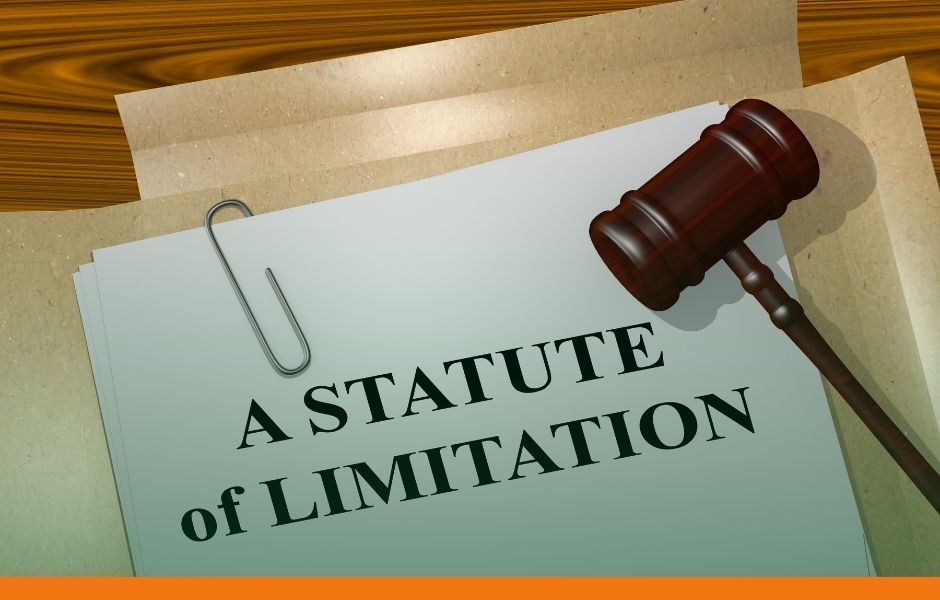The Statute of Limitations on IRS Collections
The Internal Revenue Service (IRS) is responsible for collecting federal taxes from individuals and businesses. However, there is a limit on how long the IRS has to collect tax debts, which is determined by the statute of limitations. Understanding the statute of limitations on IRS collections is crucial, as it can significantly impact your tax-related decisions and financial planning. Here, we’ll delve into what the statute of limitations on IRS collections entails, how it works, and what it means for taxpayers.
What Is the Statute of Limitations on IRS Collections?
The statute of limitations on IRS collections is a legal time limit that restricts the IRS from pursuing the collection of unpaid tax debts after a certain period. This time limit is in place to protect taxpayers from indefinite collection efforts by the IRS.
The specific statute of limitations on IRS collections is outlined in the Internal Revenue Code (IRC) Section 6502, which states that the IRS generally has ten years from the date of assessment to collect a tax debt. Once this ten-year period expires, the IRS can no longer pursue collection actions, and the tax debt is considered legally uncollectible.
How Is the Statute of Limitations Calculated?
To understand how the statute of limitations on IRS collections is calculated, it’s essential to know when the clock starts ticking. The statute of limitations typically begins on the date of assessment, which is the date the IRS officially records the tax debt on its books. This date may vary depending on the circumstances that led to the tax debt:
- From the Date of Filing: If you filed your tax return and reported the amount you owe, the assessment date is usually the date you filed your return. For example, if you filed your 2021 tax return on April 15, 2022, and you owed taxes, the statute of limitations would generally expire on April 15, 2032.
- From the Date of an Audit Adjustment: If the IRS audits your tax return and makes an adjustment, the assessment date is typically the date the IRS assesses the additional tax. This may occur months or even years after you filed your return.
- From the Date of a Substitute Return: If you fail to file a tax return and the IRS files a substitute return on your behalf, the assessment date is the date the IRS creates the substitute return.
- From the Date of an Offer in Compromise or Installment Agreement: If you enter into an Offer in Compromise (OIC) or an Installment Agreement (IA) with the IRS, the statute of limitations is extended for the period during which your OIC or IA is under consideration, plus an additional 30 days.
- From the Date of Bankruptcy: If you file for bankruptcy, the statute of limitations is tolled (paused) during the time your bankruptcy case is pending, plus an additional six months.
It’s important to note that the statute of limitations can be extended or suspended in certain situations, such as if you leave the country for an extended period or if the IRS initiates legal actions, such as filing a Notice of Federal Tax Lien or issuing a Levy. These actions can pause the statute of limitations until the issue is resolved.
Implications of the Statute of Limitations
Understanding the implications of the statute of limitations on IRS collections is essential for taxpayers. Here are a few key points to consider:
- Collections End: Once the statute of limitations expires, the IRS can no longer take collection actions to enforce payment of the tax debt. This includes actions like levies, wage garnishments, and property seizures.
- Tax Lien Survives: While collections may end, a federal tax lien, if filed, can continue to affect your credit and property. A federal tax lien can remain in place even after the statute of limitations has expired, although the IRS cannot actively enforce collection.
- Refunds: If you’re eligible for a tax refund but don’t claim it within the statute of limitations period, the IRS will keep the refund. It’s essential to file for refunds promptly to ensure you receive any money owed to you.
- State Taxes: State tax authorities have their own statutes of limitations for collecting unpaid state taxes. These statutes can vary, and they may differ from federal statutes. Be sure to check your state’s specific rules.
- Recordkeeping: The IRS generally recommends retaining tax records for at least three years from the date you filed your return or two years from the date you paid the tax, whichever is later. However, it’s a good practice to keep records for longer to address potential future inquiries or audits.
Statute of Limitations on Criminal Tax Fraud
It’s important to note that the statute of limitations for criminal tax fraud is different from the statute of limitations for civil tax matters. The IRS has no time limit for pursuing criminal charges in cases of tax evasion or fraud. If the IRS believes you committed criminal tax fraud, it can initiate legal actions against you, regardless of how much time has passed since the tax debt was assessed.
Conclusion
The statute of limitations on IRS collections is a critical aspect of tax law that impacts how long the IRS can pursue the collection of unpaid tax debts. Understanding when the statute begins, how it can be extended or paused, and its implications is essential for taxpayers. While the statute of limitations can provide relief for some individuals and businesses, it’s crucial to consult with a tax professional if you have concerns or questions about your specific tax situation. Complying with tax laws and proactively addressing tax issues can help you avoid legal complications and financial challenges in the long run.








